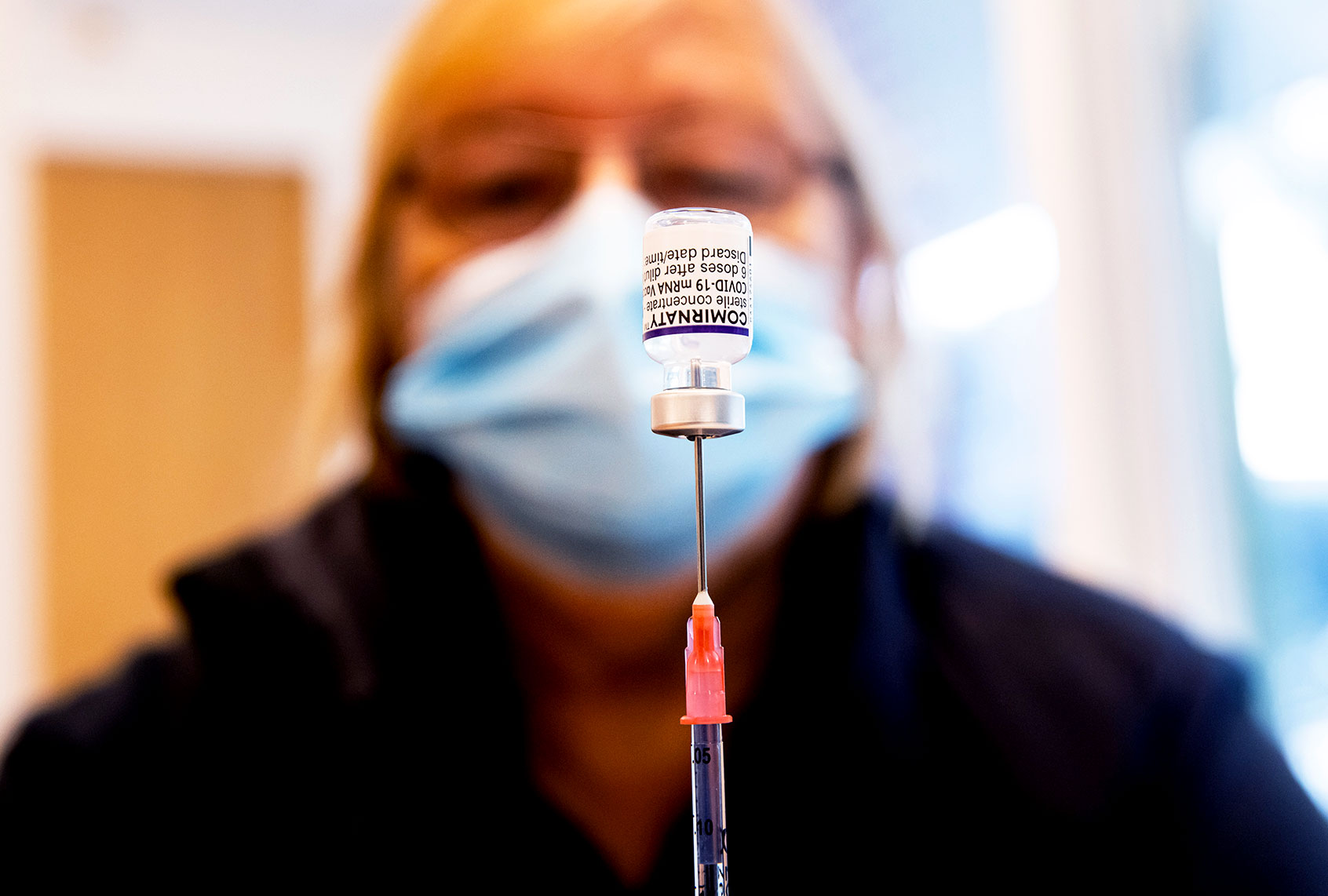Fears about the omicron variant’s ability to evade vaccines may end up being overblown — at least, if enough humans are inoculated with a third dose of Pfizer-BioNTech’s COVID-19 vaccine.
According to Pfizer-BioNTech, the third dose or “booster” dose of their patented vaccine protects patients against the mutant SARS-CoV-2 virus strain with an effectiveness comparable to how two doses defend against other common strains.
The company determined this based on laboratory studies which revealed analogous levels of neutralizing antibodies, or the proteins produced by the immune system to identify and kill pathogens. There was a 25-fold drop in these neutralizing antibodies among patients who had only received two doses of the Pfizer vaccine, suggesting that the omicron variant may be able to more easily evade the protections in people who lack the extra dose. By contrast, if future research replicates these results, it indicates that three doses of the Pfizer shot will likely be enough to keep the vast majority of patients from developing serious infections.
The challenge when fighting an infectious disease like COVID-19 is making sure that vaccines can protect patients even after the pathogens have evolved. Vaccines work by training the immune system to identify specific markers within a given pathogen; if that pathogen mutates beyond recognition, it weakens the body’s ability to detect and stop invading viruses.
Want more health and science stories in your inbox? Subscribe to Salon’s weekly newsletter The Vulgar Scientist.
Experts are concerned about B.1.1.529 (the omicron variant’s formal name) because it has 50 mutations, 32 of which are in the spike protein. The spike protein is so-named because, like spines on a sea urchin, it pokes out from all sides of the SARS-CoV-2 virus; such proteins are intrinsic to the virus’ ability to enter and infect human cells. The mRNA viruses work by training the immune system to identify those proteins, meaning that any alterations to their structure could theoretically help the virus beat the vaccine’s protection.
“The 32 mutations across the spike protein doesn’t mean that it evades immunity, but it is the most [mutations] we’ve seen,” Dr. Monica Gandhi, infectious disease doctor and professor of medicine at the University of California–San Francisco, told Salon last month. “In one region in South Africa, cases [of omicron] are going up really fast — it’s really just dominating the screens there — and that made some people say, ‘it looks like this is really transmissible’ because we thought that delta was the pinnacle of being transmissible right now.”
The new research about the latest Pfizer study follows up an earlier announcement in which scientists revealed the company’s vaccine offered at least partial protection against omicron. The leader of that study team, Dr. Alex Sigal of the Africa Health Research Institute in Durban, noted that humans are lucky the omicron variant infects cells through the ACE2 receptor. This allows existing vaccines to still partially work against the variant.
“Imagine if this virus had found a different receptor to bind to,” Sigal commented. “Then all of our vaccines would have been trash.”
It remains to be seen if the news about the Pfizer booster is a game changer in the fight against the omicron variant. Before the news was announced, virologist Dr. Jesse Bloom from the Fred Hutchinson Cancer Research Center in Seattle told The New York Times that “given the very large drop in neutralizing antibody titers that are seen here with omicron” it makes sense to move “as fast as possible with making omicron-specific vaccines, as long as it seems like there’s a possibility it could spread widely.”

